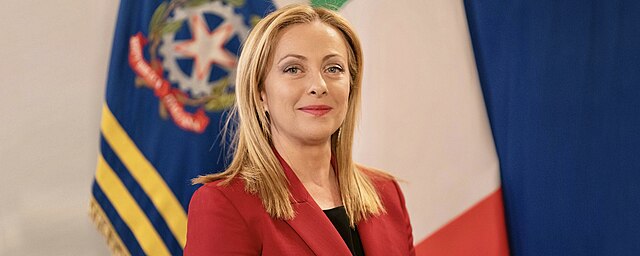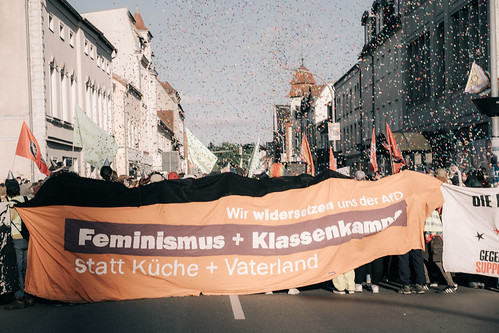Giorgia Meloni, leader of the Brothers of Italy (Fratelli d’Italia), has become a key figure in changing the country’s political landscape. As the head of a far-right party, she has successfully tapped into rising nationalist feelings and positioned herself at the center of Italian conservatism. Her political journey began at 15 when she joined the neo-fascist Italian Social Movement (MSI). Over the years, she rose through the ranks and co-founded the Brothers of Italy in 2012, where she has maintained a strong nationalist and socially conservative platform. In 2022, she became Italy’s first female Prime Minister.
Italy, the third-largest economy in the eurozone, has experienced chronic political instability, with more than 70 governments since World War II. The country also faces big economic challenges, such as high public debt and an aging population nearing retirement. These problems are made worse by a tax system where rates range from 23% to 45%, causing many young Italians to leave the country for better opportunities. In Northern Italy, the average annual salary is about €30,000, while in the south it drops to €26,000, making it hard for many people to cope with high taxes and stagnant wages.
Why is Giorgia Meloni so popular in a divided nation?
Giorgia Meloni’s popularity comes partly from her being less extreme than some past leaders. Her motto is “God, Homeland, Family,” and she strongly supports traditional Catholic values, including promoting conventional family models. On social media, she presents herself as a relatable outsider and, above all, as a mother. This helps her connect with Italians and portray herself as “the woman of the people” which makes her different from typical politicians. This approach is similar to former Prime Minister Silvio Berlusconi, one of her political allies, who was a media tycoon and a key figure in Italian politics. Berlusconi was great at presenting himself as a charismatic, down-to-earth leader who understood ordinary people’s concerns. Like Meloni, he used his media presence to create a strong connection with voters, making himself seem like an outsider to the political elite while still being relatable.
Meloni often poses with a big smile and flashes the peace sign, a gesture that makes her look friendly and approachable. These lighthearted moments, along with her political messages, help her connect with everyday Italians, adding to her appeal as a leader who stands apart from the political elite. Her skilful use of social media, posting content that resonates with Italian families, further strengthens her connection with the public. This strategy, which both leaders used, helps Meloni build trust in a political system many Italians feel lacks authenticity.
She does not openly call for banning abortion but makes it harder to access by supporting anti-abortion groups that promote alternative options at clinics. This makes an already difficult process even harder for many women and can be seen as a form of “silent influence”. Instead of risking losing followers by outrightly banning abortion, she makes it more complicated to access.
She consistently voices opposition to same-sex marriage, which aligns with her conservative views on family and social issues. She believes in a traditional family structure, defined as the union between a man and a woman, and often argues that this is the foundation of society. In her view, alternative family models, such as those formed by same-sex couples, are a threat to Italy’s social fabric. Meloni supports policies aimed at defending what she calls “natural families” and frames her opposition to same-sex marriage and adoption as defending children’s rights rather than discriminating against the LGBTQ+ community.
She has also framed her opposition to LGBTQ rights as part of a larger fight against what she calls the “LGBT lobby,” accusing it of undermining traditional Christian and family values in Italy. Meloni often highlights the need to resist external pressures, portraying her stance as a way to preserve Italy’s identity, which she believes is rooted in these values
Historically, leaders like Mussolini gained power when Italians felt angry and abandoned by the government. Today, a similar feeling exists, with many Italians feeling neglected by the left and wanting change. This often leads people to support the opposite side of the political spectrum, including far-right or populist leaders who promise “Italy for Italians”. When people feel left behind, they look for a strong leader with a vision to guide them out of a crisis. The rise of figures like Meloni or Trump shows how populist leaders can gain power during times of social and economic distress. These leaders often promise stability and a return to traditional values, but they also promote nationalist ideas, blame immigrants, and support only certain parts of the population. Like many other EU countries, Italy is struggling with a low birth rate and needs younger generations. Instead of seeing immigrants as the problem, the real challenge is integrating them effectively into society.
Meloni has not clearly distanced herself from the fascist roots of Brothers of Italy. Their symbol, the tricolor flame, was originally used by the Italian Social Movement (MSI), a neo-fascist party formed after World War II by Mussolini’s supporters. In her early twenties, she expressed admiration for Mussolini, saying, “Mussolini was a great politician; everything he did was for Italy”. This continued use of fascist symbols and rhetoric suggests support for Italy’s fascist legacy, raising concerns in modern society.
As a newcomer to Berlin, I’ve noticed the disturbing sight of people giving fascist salutes in public places like the U-Bahn, behavior that seems to have increased, especially after recent elections. This shows a growing acceptance of far-right ideologies across Europe, with Italy being no exception. For instance, during a yearly event to remember three neo-fascist activists killed in the 1970s, hundreds of Italians gathered in Rome to give fascist salutes. This resurgence of extremist symbols is worrying, and while democracy protects free speech, governments often shape what people feel is acceptable in public, potentially encouraging such displays.
Interestingly, the far-right in Italy has been dedicated to reshaping the legacy of Silvio Berlusconi since his death. A key example is the renaming of Milan’s airport in his honor. It’s ironic to think of flying from Palermo to Milan, starting at Falcone & Borsellino Airport, named after two heroic prosecutors who fought the mafia, and landing at Silvio Berlusconi Airport, named after a man once accused of colluding with the mafia. This contrast says a lot about how history can sometimes be rewritten.
Is Meloni pro-EU or Eurosceptic? During the June 2024 EU elections, Ursula von der Leyen sought to include Meloni’s European Conservatives and Reformists (ECR) party in her alliance in the European Parliament, as Meloni had positioned herself as pro-EU and anti-Putin. In contrast, French far-right politician Marine Le Pen invited Meloni to join her eurosceptic Identity and Democracy (ID) group, highlighting their shared critical views of the EU. Meloni’s stance remains ambiguous. While she has softened her past criticism of the EU, acknowledging the economic benefits of staying in the bloc given Italy’s weak economy, high debt, and slow growth, her ability to appeal to both pro-EU and eurosceptic voters leaves her true position unclear. This ambiguity raises questions about whether her shifts are rooted in genuine belief or strategic calculations to attract a broader voter base.
Giorgia Meloni is both a product of Italy’s complex history and a key figure shaping its present. Her popularity reflects a deep desire among many Italians for a return to traditional values and national pride. While she offers a vision of stability and strength, her policies, particularly on civil rights and social issues, have sparked important debates about the direction Italy is heading. As Meloni continues to influence Italian and European politics, her leadership raises questions about the future. Will her approach bring the unity and renewal she promises, or could it deepen existing divisions? Italians and Europeans alike will need to consider how her vision aligns with the broader challenges and opportunities facing the EU. Ultimately, the impact of her leadership will shape not only Italy but also Europe’s evolving political landscape.




